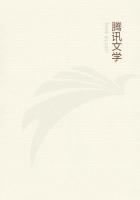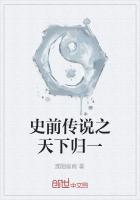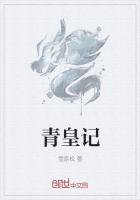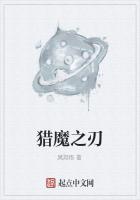Taking then the Chinese language as the best existing type of the original isolating stratum, "as the faithful photograph of man in his leading-strings trying the muscles of his mind, groping his way, and so delighted with his first successful 48grasps that he repeats them again and again," (Max Muller, p. 13)- we have, in the language of the Vril-ya, still "clinging with its roots to the underlying stratum," the evidences of the original isolation. It abounds in monosyllables, which are the foundations of the language. The transition into the agglutinative form marks an epoch that must have gradually extended through ages, the written literature of which has only survived in a few fragments of symbolical mythology and certain pithy sentences which have passed into popular proverbs. With the extant literature of the Vril-ya the inflectional stratum commences. No doubt at that time there must have operated concurrent causes, in the fusion of races by some dominant people, and the rise of some great literary phenomena by which the form of language became arrested and fixed. As the inflectional stage prevailed over the agglutinative, it is surprising to see how much more boldly the original roots of the language project from the surface that conceals them. In the old fragments and proverbs of the preceding stage the monosyllables which compose those roots vanish amidst words ofenormous length, comprehending whole sentences from which no onepart can be disentangled from the other and employed separately. But when the inflectional form of language became so far advanced as to have its scholars and grammarians, they seem to have united in extirpating all such polysynthetical or polysyllabic monsters, as devouring invaders of the aboriginal forms. Words beyond three syllables became proscribed as barbarous and in proportion as the language grew thus simplified it increased in strength, in dignity, and in sweetness. Though now very compressed in sound, it gains in clearness by that compression. By a single letter, according to its position, they contrive to express all that with civilised nations in our 49upper world it takes the waste, sometimes of syllables, sometimes of sentences, to express. Let me here cite one or two instances: An (which I will translate man), Ana (men); the letter 's' is with them a letter implying multitude, according to where it is placed; Sana means mankind; Ansa, a multitude of men. The prefix of certain letters in their alphabet invariably denotes compound significations. For instance, Gl (which with them is a single letter, as 'th' is a single letter with the Greeks) at the commencement of a word infers an assemblage orunion of things, sometimes kindred, sometimes dissimilar- as Oon, a house; Gloon, a town (i. e., an assemblage of houses). Ata is sorrow; Glata, a public calamity. Aur-an is the health or wellbeing of a man; Glauran, the wellbeing of the state, the good of the community; and a word constantly in ther mouths is A-glauran, which denotes their political creed- viz., that "the first principle of a community is the good of all." Aub is invention; Sila, a tone in music. Glaubsila, as uniting the ideas of invention and of musical intonation, is the classical word for poetry- abbreviated, in ordinary conversation, to Glaubs. Na, which with them is, like Gl, but a single letter, always, when an initial, implies something antagonistic to life or joy or comfort, resembling in this the Aryan root Nak, expressive of perishing or destruction. Nax is darkness; Narl, death; Naria, sin or evil. Nas- an uttermost condition of sin and evil- corruption. In writing, they deem it irreverent to express the Supreme Being by any special name. He is symbolized by what may be termed the heiroglyphic of a pyramid, /. In prayer they addressHim by a name which they deem too sacred to confide to a stranger, and I know it not. In conversation they generally use a periphrastic epithet, such as the All-Good. The letter V, symbolical of the inverted pyramid, where it is an initial, nearly always denotes excellence of power; as Vril, of which I have said so much; Veed, an immortal spirit; Veed-ya, immortality; Koom, pronounced like the Welsh Cwm, denotes 50something of hollowness. Koom itself is a cave; Koom-in, a hole; Zi- koom, a valley; Koom-zi, vacancy or void; Bodh-koom, ignorance (literally, knowledge-void). Koom-posh is their name for the government of the many, or the ascendancy of the most ignorant or hollow. Posh is an almost untranslatable idiom, implying, as the reader will see later, contempt. The closest rendering I can give to it is our slang term, "bosh;" and this Koom-Posh may be loosely rendered "Hollow-Bosh." But when Democracy or Koom-Posh degenerates from popular ignorance into that popular passion or ferocity which precedes its decease, as (to cite illustrations from the upper world) during the French Reign of Terror, or for the fifty years of the Roman Republic preceding the ascendancy of Augustus, their name for that state of things is Glek-Nas. Ek is strife- Glek, the universal strife. Nas, as I before said, is corruption or rot; thus, Glek-Nas may be construed, "the universal strife-rot." Their compounds are very expressive; thus, Bodh being knowledge, and Too a participle that implies the action of cautiously approaching,- Too-bodh is their word for Philosophy; Pah is a contemptuous exclamation analogous to our idiom, "stuff and nonsense;" Pah-bodh (literally stuff and nonsense-knowledge) is their term for futile and false philosophy, and applied to a species of metaphysical or speculative ratiocination formerly in vogue, which consisted in ****** inquiries that could not be answered, and were not worth ******; such, for instance, as "Why does an An have five toes to his feet instead of four or six? Did the first An, created by the All- Good, have the same number of toes as his descendants? In the form by which an An will be recognised by his friends in the future state of being, will he retain any toes at all, and, if so, will they be material toes or spiritual toes?" I take these illustrations of Pahbodh, not in irony orjest, but because the very inquiries I name formed the subject of controversy by the latest cultivators of that 'science,'- 4000 years ago. 51 In the declension of nouns I was informed that anciently there were eight cases (one more than in the Sanskrit Grammar); but the effect of time has been to reduce these cases, and multiply, instead of these varying terminations, explanatory propositions. At present, in the Grammar submitted to my study, there were four cases to nouns, three having varying terminations, and the fourth a differing prefix.
同类推荐
热门推荐
邪王追妻,爱妃不要跑
“我的意中人是个盖世英雄,有一天他会踏着五彩祥云来娶我。”“然后脱掉金甲圣衣,做个三天三夜,让你起不来床!”尼玛,她猜中了开头,却猜不中结尾!天啊,谁来将这个外表冷酷,内则放浪的闷骚男带走!“老婆,其实,我只是想睡你,若非要加个期限,我希望是一万年!”

